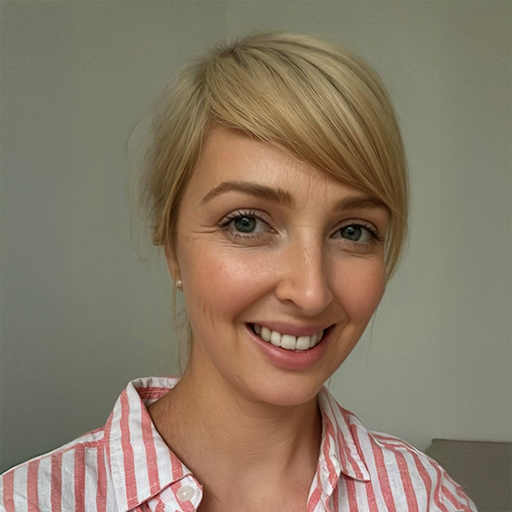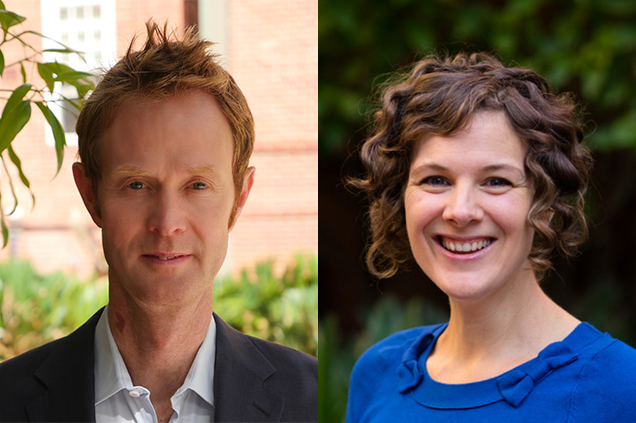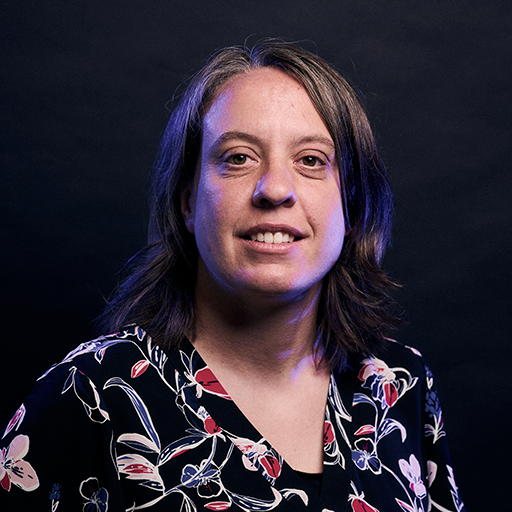Five researchers from Deakin's Faculty of Health have been awarded $10.8 million in Medical Research Future Fund (MRFF) grants.
The Medical Research Future Fund (MRFF) supports health and medical research aligned to national priorities, bringing innovative discoveries to market.
Associate Professor Lisa Olive, Professor Peter Vuillermin, Dr Samantha Dawson, Professor Karen Caeyenberghs and Professor Robin Daly will each lead life-changing health and medical research projects across childhood and maternal mental healthcare, telehealth and survivorship care.
2024 MRFF Early to Mid-Career Researchers

Associate Professor Lisa Olive, SEED - Lifespan
Optimising and embedding lifestyle therapy into routine childhood mental health services - $3,982,928.83
Approximately 14% of Australian children aged 4-11 have mental health disorders, with anxiety and mood disorders being two of the most common. CALM-Kids is an innovative, evidence-based program designed by Assoc. Prof Olive that targets physical activity, diet, sleep and screen time to improve mental health symptoms in children. Assoc Prof Olive and her team will evaluate the clinical and cost-effectiveness of CALM-Kids and drive the program's implementation into routine practice. The anticipated outcome is an entirely new pathway in child mental health care that harnesses a broader workforce, including dieticians and exercise physiologists; with the potential to reduce the incidence of clinical disorders and burden on the mental health system.
2024 MRFF Maternal Health and Healthy Lifestyles

Professor Peter Vuillermin and Dr Samantha Dawson, Institute for Mental and Physical Health and Clinical Translation
A midwife-delivered prenatal dietary intervention to prevent perinatal depression and child neurocognitive vulnerability in regional and rural communities - $2,922,893.68
Poor quality nutrition during pregnancy increases the risk of Perinatal Depression and Anxiety (PNDA), which can negatively impact child cognitive outcomes. Although prenatal diet is a well-established, modifiable risk factor for multiple adverse maternal and infant outcomes, access to prenatal dietary support is limited in rural and remote communities. Pregnant women in Australia generally only receive dietetics input once they have already developed a diet-related condition such as gestational diabetes. The clinical trial will test an intervention in which midwife nutrition coaches collaborate with pregnant women to access high-quality nutrition information, set meaningful nutrition goals, and monitor and reflect on progress.
2024 MRFF Survivorship Care and Collaborative Research Prioritisation

Professor Karen Caeyenberghs, Cognitive Neuroscience Unit (CNU)
ASPIRE - A new scalable and sustainable platform to improve survivorship care for assault victims living with severe physical and psychological deficits - $1,996,698.00
Domestic violence and random assaults are a growing crisis in Australia, leading to severe consequences, like traumatic brain injuries (TBI). In a pioneering initiative, Professor Caeyenberghs and her team will launch ASPIRE, a web-based platform with integrated portable low-field MRI scans, designed to enhance survivorship care for violence victims. This platform aims to provide personalised care, significantly improving the physical and psychological wellbeing of violence victims.

Professor Robin Daly, Institute for Physical Activity and Nutrition
TeleCARE: A personalised, clinician-supported, virtual care telehealth exercise, nutrition, education, behaviour change and peer support model for cancer-related fatigue - $1,997,048.05
Cancer-related fatigue is a debilitating side effect, with up to 40% of survivors having persistent moderate-to-severe fatigue post-treatment. This fatigue affects all aspects of their life and causes significant distress. Clinical guidelines for fatigue management recommend survivors receive a tailored care plan encouraging healthy lifestyle self-management behaviours inclusive of evidence-based exercise and nutrition support. However, survivors (and their carers) often face barriers accessing effective fatigue management interventions and clinicians who meet their needs. Professor Daly and his team will evaluate whether TeleCARE, a clinician-supported virtual care telehealth model of care, can improve fatigue, quality of life and self-management behaviours in cancer survivors.
The text of this article is licensed under the Creative Commons Attribution (CC BY) 4.0 International






